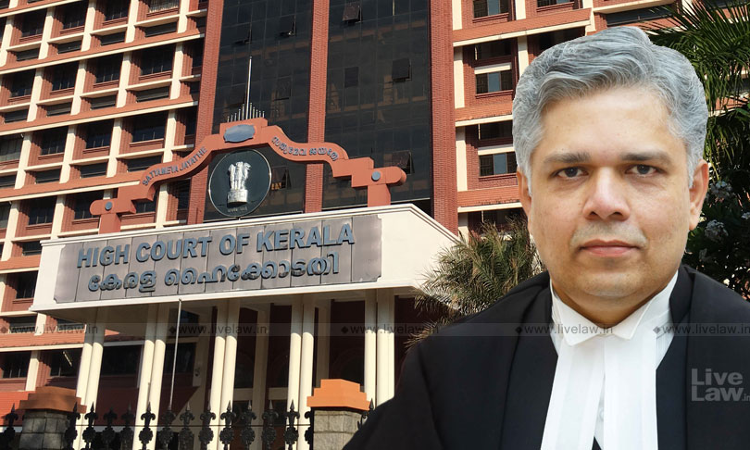- Home
- /
- High Courts
- /
- Kerala High Court
- /
- Kerala High Court Quashes State's...
Kerala High Court Quashes State's Order For Removal Of Sedimentation From Periyar River, Calls For Comprehensive Solution
Anamika MJ
28 Aug 2025 6:58 PM IST
The Kerala High Court on Wednesday (27, August) has set aside an order issued by the State Chief Secretary directing the Cochin Port Trust to urgently remove sedimentation obstructing the flow of the Periyar River near the Vallarpadam railway bridge, holding that such a far-reaching decision required consultation with all stakeholders. The court also directed the state to find a...
The Kerala High Court on Wednesday (27, August) has set aside an order issued by the State Chief Secretary directing the Cochin Port Trust to urgently remove sedimentation obstructing the flow of the Periyar River near the Vallarpadam railway bridge, holding that such a far-reaching decision required consultation with all stakeholders. The court also directed the state to find a comprehensive solution to the issue within three months.
Justice Devan Ramachandran delivered the judgment while considering a batch of cases relating to the sedimentation in Periyar river.
The case arose from two writ petitions filed by the Cochin Port Trust and Afcons Infrastructure Ltd., both challenging the government's October 27, 2021 directive. The order had tasked the Port Trust with clearing the debris allegedly caused by construction of the International Container Transshipment Terminal (ICTT) Vallarpadam, and warned of possible reparatory damages against Afcons or other entities.
A study conducted by the Kerala Engineering Research Institute (KERI) in 2021 found heavy sediment deposits — consisting of clay and silt — for nearly three kilometers around the Vallarpadam bridge. The District Collector reported that this accumulation obstructed water flow and posed a flood risk, especially in light of Kochi's recent inundation during the 2018 and 2019 monsoons. Acting on this, the Chief Secretary, in his capacity as Chairperson of the State Disaster Management Authority's Executive Committee, issued the contested order.
Senior counsel E K Nandakumar appearing for the Port Trust contended that the institution was not directly responsible for the ICTT's construction, which had been undertaken by Afcons under contracts with the Central government, Ministry of railways andRailways Vikas Nigam Limited. Any subsequent sedimentation, they argued, could not be shifted onto the Port Trust.
M Ramesh Chander, senior counsel appearing for Afcons also maintained that it had acted only as a contractor and bore no independent responsibility. Both petitioners alleged that the order was issued mechanically, without adequate study or hearing.
The State, however, argued that the issue was one of urgent public importance, pointing to the severity of recent monsoons and the threat to citizens if water flow was not restored. It defended the Chief Secretary's powers under the Disaster Management Act, 2005. Government pleader, S Kannan further pointed out the detailed counter affidavit, in which the petitioner's role in the sedimentation of the Periyar river was detailed.
The Court observed that a High Level Committee was constituted during the pendency of the writ petition in which a detailed report on the issues of writ was submitted. It noted that no action has been taken as of now on the said report specifically because the petitioners have raised objections to some of the findings and observations in the report. It was submitted that the petitioners have not signed the said report and hence it is not binding on them.
Vishnu Prasad, counsel for respondent 7 and 8 suggested that the deposits/ debris in the river can be removed and monetised, and can be put to profitable use. The court noted that the suggestion is regarding the debris to be used by National Highways Authority India(NHAI) for filling or construction in Highway Projects in Kerala. Counsel for NHAI submitted that it was not possible because its quality was not apposite for such construction. Other suggestions were also made, to which the government pleader respondent that the "same are still pending with the Government for final approval".
The Court thus ordered the government to take a final decision without any avoidable delay, ensuring that all stakeholders — statutory bodies, contractors, and private entities — are heard. The government pleader submitted that this will be done in eight months from the date when copy of judgment is received. It also encouraged exploring whether the removed sediment could be put to profitable use, noting that if feasible, it could generate revenue, which it noted as a 'win-win situation'.
“To paraphrase, It is up to the government to find a feasible solution to the problem taking all the stakeholders with them and this court is of the view that mere blamegames would not leave us to any proper resolution. The stakeholders should also keep in mind that what the court directs in for the greater public goods and they must cooperate in understanding their commitments and responsibility as statutory or corporate entities. This Court hopes hortatively that each of such players will understand the true import of the directions in this judgment and the gravity of the problem being addressed.” the Court concluded
Case Title: Cochin Port Trust v State of Kerala and connected matters
Case No: WP(C) 24027/ 2021 and connected matter
Citation: 2025 LiveLaw (Ker) 534
Counsel for Petitioners: M Gopikrishnan Nambiar, K John Mathai, Joson Manavalan, Kuryan Thomas, Paulose C Abraham, Raja Kannan, Balu Tom, Bonny Benny, Govind G Nair, Bejoy Joseph P J, E K Nandakumar (Sr.), M Ramesh Chander(Sr.), Vishnu Prasad
Counsel for Respondents: S Kannan (Sr. GP), Alina Anna Kose, P I Raheena, Karthika Ganesh, Akhila S, Vishnu Prasad N K, Sandhra Maria Sebastian, Nayan Lal A, Jayalakshmi G Nair, Sangeeth Krishna G S, Sheron Williams, A G Sunilkumar, Sunil Jacob Jose, Paulose C Abraham, Raja Kannan
Amicus Curiae: Govind Padmanabhan



